Succession returns for its fourth and final season this week. It is a fascinating study of wealth and power. It’s particularly impressive in how it manages to portray the immense wealth and privilege of its central characters without ever glorifying or romanticizing their lives.
Part of this is rooted in the show’s aesthetic. Succession is shot largely with handheld cameras, eschewing the traditionally cinematic language of other HBO offerings like House of the Dragon or The Last of Us. Logan Roy (Brian Cox) presides over an empire, but the workings of his operations are shot in a grounded style, evoking the sensibility of voyeuristic mockumentaries like The Office. The audience always feels like an outsider, peering in.
It helps that despite a budget that allows for shooting in locations like Iceland, Croatia, or Tuscany, much of the series takes place in sterile offices and boardrooms. The world of Succession is hermetically sealed, an eternal cycle of interchangeable glass doors and office sofas. The corridors of power are still just corridors. Even the show’s endless parade of private helicopters and jets is exhausting, ostensibly luxurious but creepingly claustrophobic.
However, there’s more to it than that. Succession treats wealth and power as a trap, exploring the gravity these forces exert on the show’s central cast. The characters are bonded as much through money as through blood, and there’s a lingering ambiguity about whether many of the ensemble are even capable of love — let alone expressing it towards one another. This family isn’t built on love; it’s built on power. That power is anchored in money.
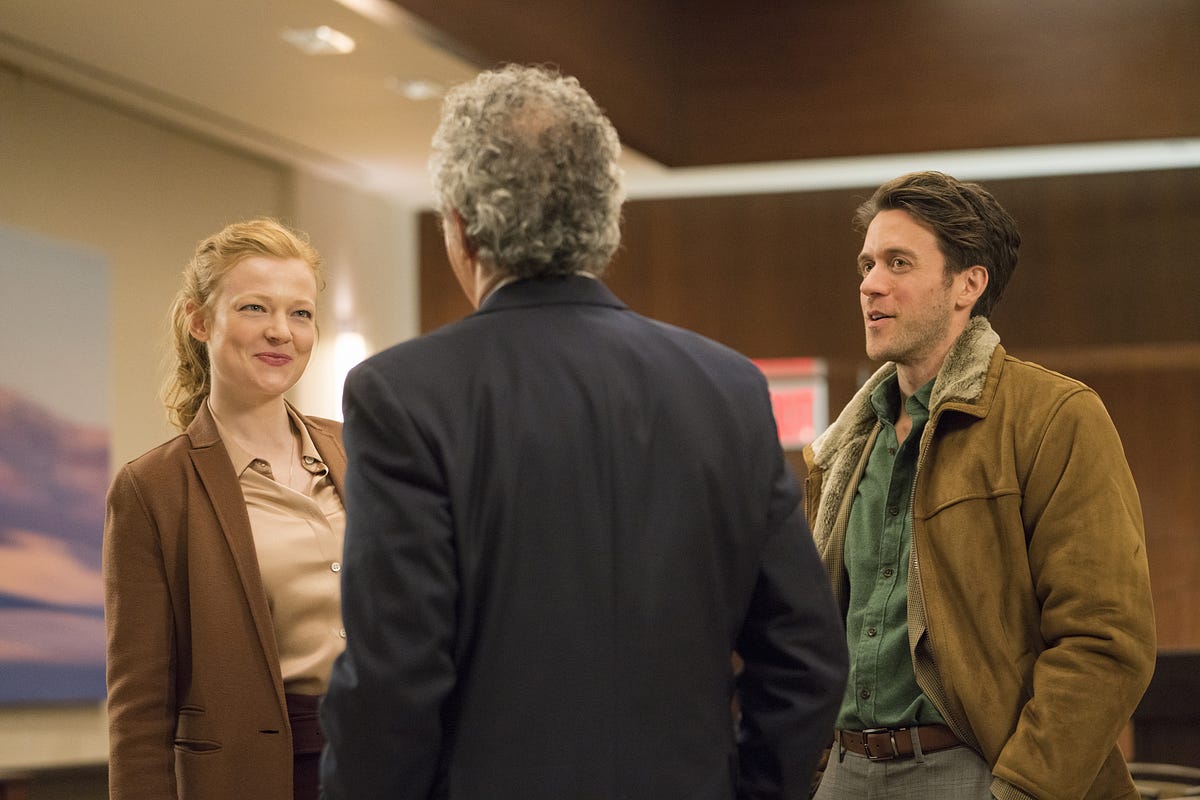
This begins with Logan Roy himself. Interestingly, the show had originally conceived of Logan as a Canadian, although his birthplace was changed via ADR to match that of actor Brian Cox. Logan was born in Dundee shortly before the Second World War. When his mother was widowed, Logan and his siblings Ewan (James Cromwell) and Rose were sent to live with their Uncle Noah in Canada. It was not a happy childhood, but it shaped Logan.
While the show has avoided articulating the finer details, Rose died under tragic circumstances during their childhood. There is some indication that Logan blames himself for this, despite Ewan’s assurances “that really wasn’t (his) fault.” Logan himself suffered terribly under Noah. There is a beautiful and quietly revealing moment at the end of the first season episode “Austerlitz,” as Logan puts on a bathrobe after a morning swim, hiding the scars he literally still carries from Noah’s abuse.
This is the key to Logan Roy, as much as an individual can be explained as a product of their circumstances. The company that he built is almost incidental, a consequence of that childhood rather than a transformative act of itself. After all, Logan’s media empire can be seen as an extrapolation of the “print shop” and the “few advertising billboards” that his uncle owned. Logan has just taken everything that he learned from Noah and extrapolated from it.
Logan doesn’t believe in love. He believes in power. His ex-wife Caroline (Harriet Walter) laments they could never own a dog, as “he never saw anything he loved that he didn’t want to kick it just to see if it would still come back.” This is the show’s core dynamic. Logan hurts his kids, knowing they’re tied to his wealth. Sometimes, this abuse is physical; Logan has hit both his youngest son Roman (Kieran Culkin) and his grandson Iverson (Quentin Morales).
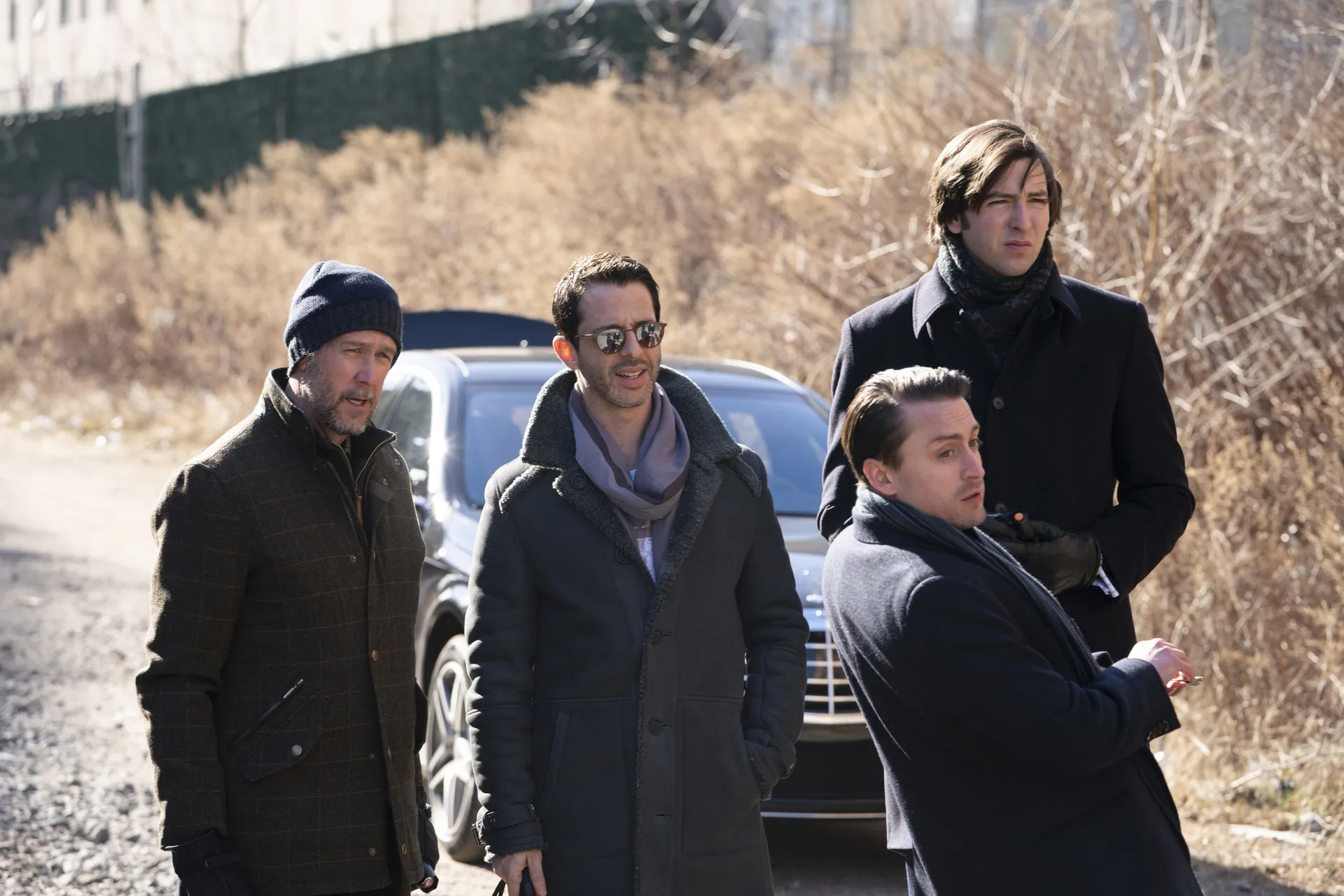
For Logan, his fortune just gives him the power to bend his family to his will, to dominate them perhaps even more extremely than Noah dominated him. Pointedly, Caroline’s observation comes shortly before a scene in which Logan refuses to let his son Kendall (Jeremy Strong) leave the family business, despite Kendall’s repeated (failed) efforts to depose him and even escape him. “Maybe I want you close,” Logan muses. “You can do the mail, keep you rattling around.”
In Succession, power creates a hierarchy of abuse. That abuse flows with gravity, trickle-down trauma-nomics. Logan holds enough influence that he can victimize anyone, with those closer to him holding enough power to victimize others, and so on and so forth. The system sustains and expands, like some monstrous pyramid scheme, with money and influence exerting such gravity that there’s no humiliation or insult so severe that any of the characters will break the chain. Logan can literally make his underlings perform like animals.
This cycle perpetuates itself. Logan constantly embarrasses and debases his daughter Shiv (Sarah Snook), often undermining her in public. Shiv replicates this dynamic with her husband Tom (Matthew Macfadyen). She cheats on him and openly tells him that she doesn’t love him. According to Logan, she married “a man fathoms beneath (her)” to avoid the risk of being betrayed. Tom seems to genuinely care for Shiv but takes his frustrations with the imbalance in their relationship out on his assistant Greg (Nicholas Braun), often physically.
Just as Logan can never escape Noah’s abuse, his children are warped by his inability to show affection. Roman struggles to share physical intimacy, only receiving physical gratification by masturbating while being verbally degraded by the company’s general counsel, and Shiv’s godmother, Gerri (J. Smith-Cameron). Logan’s eldest son, Connor (Alan Ruck), is engaged to a woman that he employed as a sex worker, Willa (Justine Lupe).
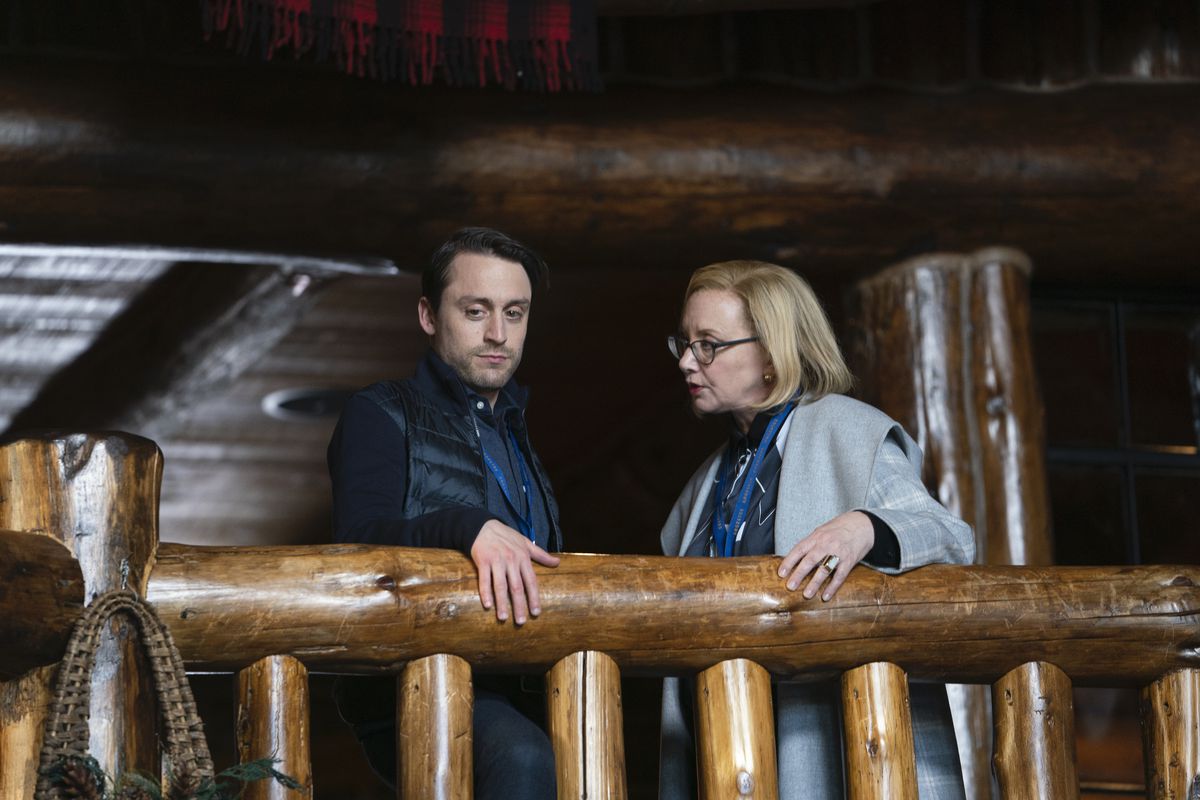
This is a compelling family psychodrama, a portrait of how these fundamentally dysfunctional dynamics play out across generations and through a variety of different relationships. However, the beauty of Succession lies in how the show extrapolates from that into a larger commentary on the hierarchies of hyper-capitalism, how that absurd concentration of wealth and influence is fundamentally damaging from the top all the way down.
After all, the Logan family dynamics are replicated in the hierarchical structures of Logan Roy’s Waystar Royco, which Logan repeatedly describes as a “family.” This pattern is often literalized, with a character receiving a torrent of abuse, only to immediately search out somebody that they can victimize to make themselves feel more powerful. When Roman is casually humiliated by his father in episodes like “Prague” or “Vaulter,” he immediately and reflexively takes it out on the next underling in his line of sight, including Greg.
One of the luxuries of sitting higher up the food chain is that shit rolls downhill. In the teaser to “Argestes,” Logan complains bitterly to Kendall about the delays in landing his private jet at an exclusive billionaires’ retreat. Kendall timidly accepts the tongue lashing, in front of Roman and Gerri. Kendall then makes his way into the back compartment of the jet and attacks the company’s lawyers over their slow progress on the sexual harassment scandal consuming the family’s cruise business.
No longer performing for his father, Kendall is in a position of relative authority. “You pour the shit I’m pouring on you on your fucking minions,” he instructs the legal team, illustrating that even he understands these systems. Even his language is that of a frustrated and abusive patriarch. “Everything you’re doing is fucking bullshit, and I’m very disappointed in you.” As he returns to the front of jet, the first thing he hears is his father complaining, “We’ve been circling for a fucking hour.”
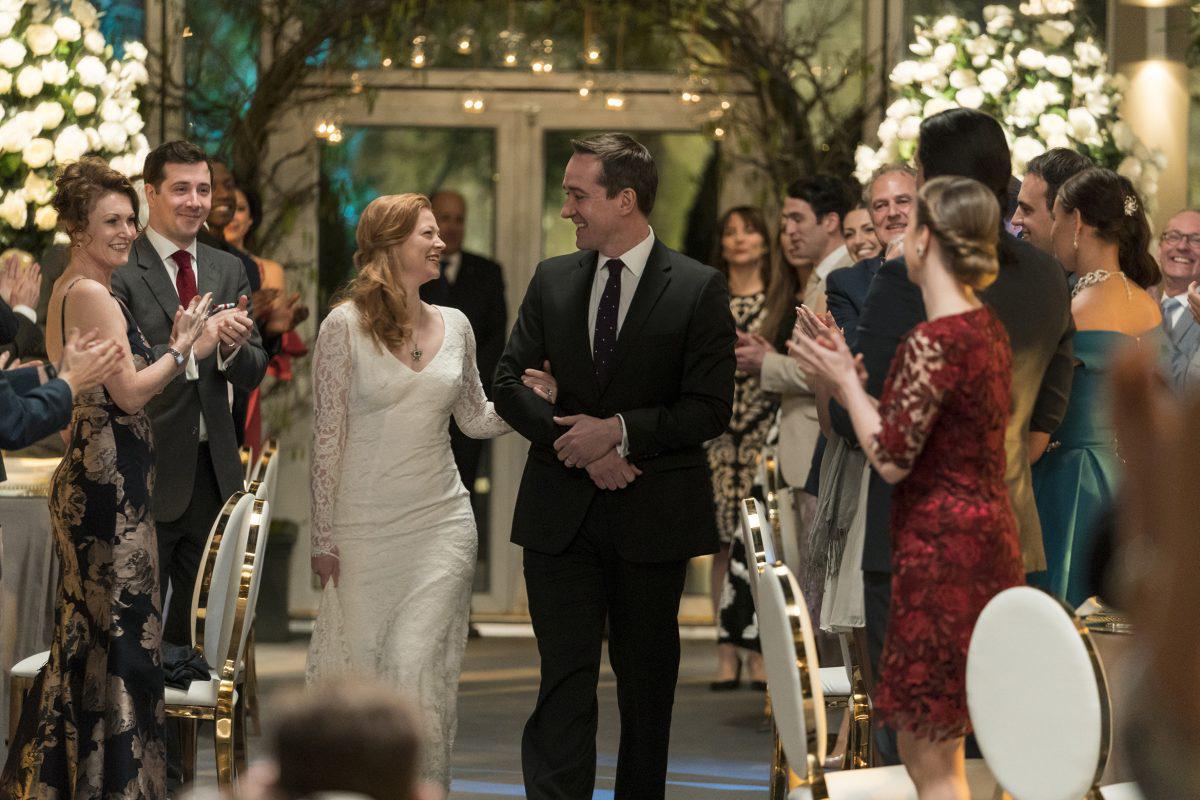
The benefit of wealth is that there are always people to kick without consequence. Throughout Succession, it’s clear these characters see themselves above regular people. Tom and Greg use employees at the company’s news outlet as literal footstools. That horrific scandal in the company’s cruise division was categorized in internal documents as “NRPI” — “No Real Person Involved.” It’s the same logic that Logan employs when Kendall is involved in an accident that results in the death of a waiter (Tom Morley) at Shiv’s wedding.
Succession suggests that this is the allure of capitalism, its seductive facade. It is a system that rewards and encourages this behavior, which treats demonstrations of influence and power as synonymous with expressions of value and worth. In the third season finale, “All the Bells Say,” Tom betrays Shiv to Logan, with the show suggesting that this is Tom’s perverted way of proving that he is worthy of his wife’s respect, a show of force that shows she is not “way out of (his) fucking league.”
For those who have been the victims of suffering from those above, there is an appeal and even a logic in leveraging power to inflict suffering upon those below. When Tom enlists Greg to join him in betraying Shiv to Logan, Greg has a simple motivation. He no longer wants to be at the bottom of the ladder. He begins to ask, “Could I get my own… my own, like…” Tom immediately sees where he’s going. “Your own Greg?” Tom finishes for him. “You can have twenty.” That’s the dream, apparently. There must always be someone lower down the chain.
There is no freedom in any of this. None of the supporting cast hold any power. They mortgage it from Logan. As much as those beneath Logan make life worse for the people under them, they are trapped themselves. “Safe Room” opens with Kendall traveling to the roof of his father’s New York offices, considering the skyline. Midway through the episode, he walks to the ledge, perhaps considering something more ominous. When he returns to the roof in the episode’s final moments, even that escape is shielded behind bulletproof glass.
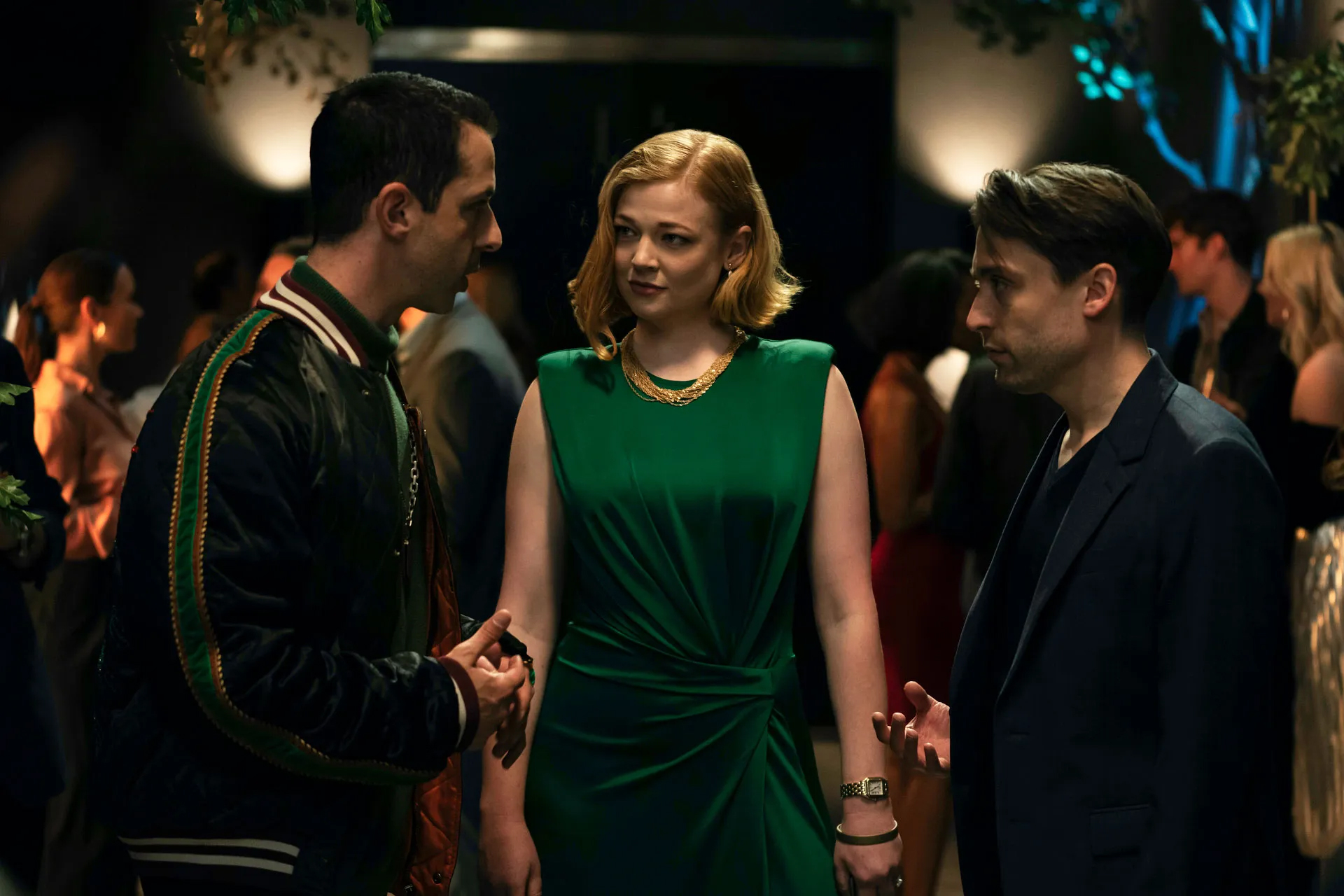
The characters in Succession are never less happy than when they should be enjoying their exorbitant wealth: Tom’s bachelor party in “Prague,” Shiv’s wedding in “Nobody Is Ever Missing,” Logan’s 50th anniversary at Waystar in “Dundee.” Kendall’s attempt at a blowout 40th birthday party in “Too Much Birthday” becomes a sad invocation of an idealized childhood he never had but somehow can’t escape — happy family memories, a cool treehouse hangout, even aborted plans to serve hors d’oeuvres in retro lunchboxes.
The episode ends with Kendall cradled by his girlfriend Naomi (Annabelle Dexter-Jones), wrapped in an A-Team duvet. It’s a reminder that Kendall’s never really grown up, that he has spent his entire life infantilized and powerless. (Tellingly, key scenes unfold in children’s bedrooms.) Succession is loaded with references to Greek and Roman mythology, and it is rightly discussed as a fundamentally Oedipal drama about Kendall’s struggles to escape his own father. That said, it’s funny to think the show almost killed off Logan in its first season.
Succession is about Kendall, but it is as much a story about how Logan has used the wealth and power that he has amassed to make himself inescapable. His money serves as a leash to ensure that those under him will always come back, no matter how hard he kicks.

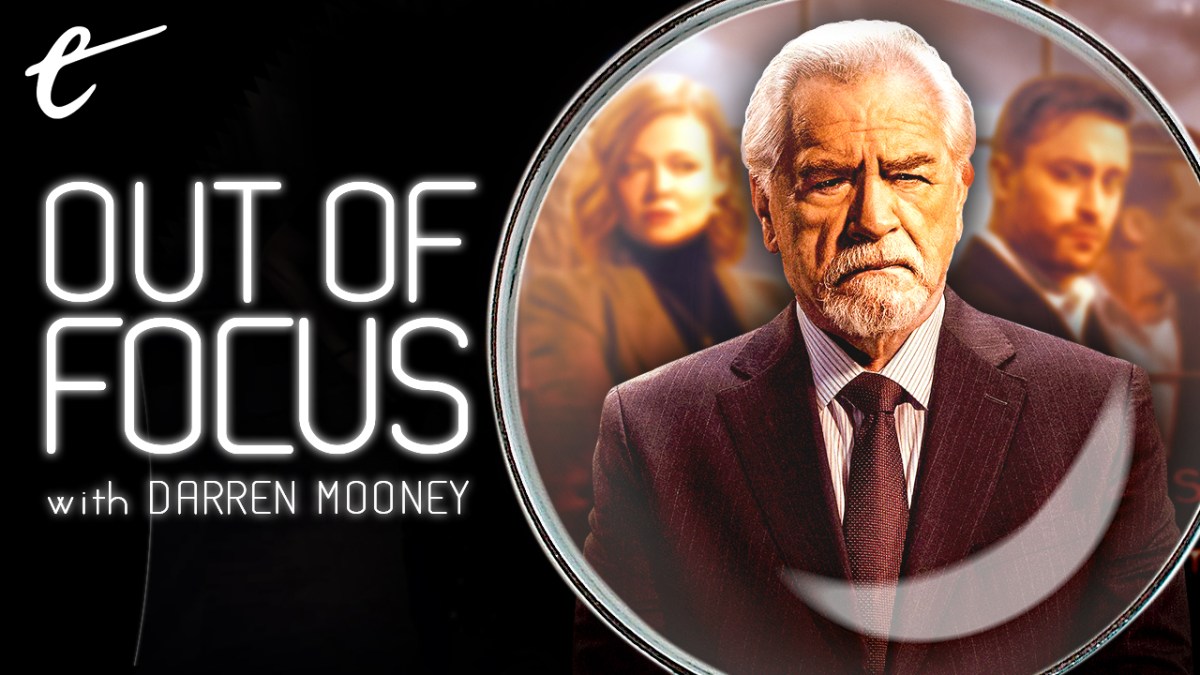




Published: Mar 22, 2023 11:00 am